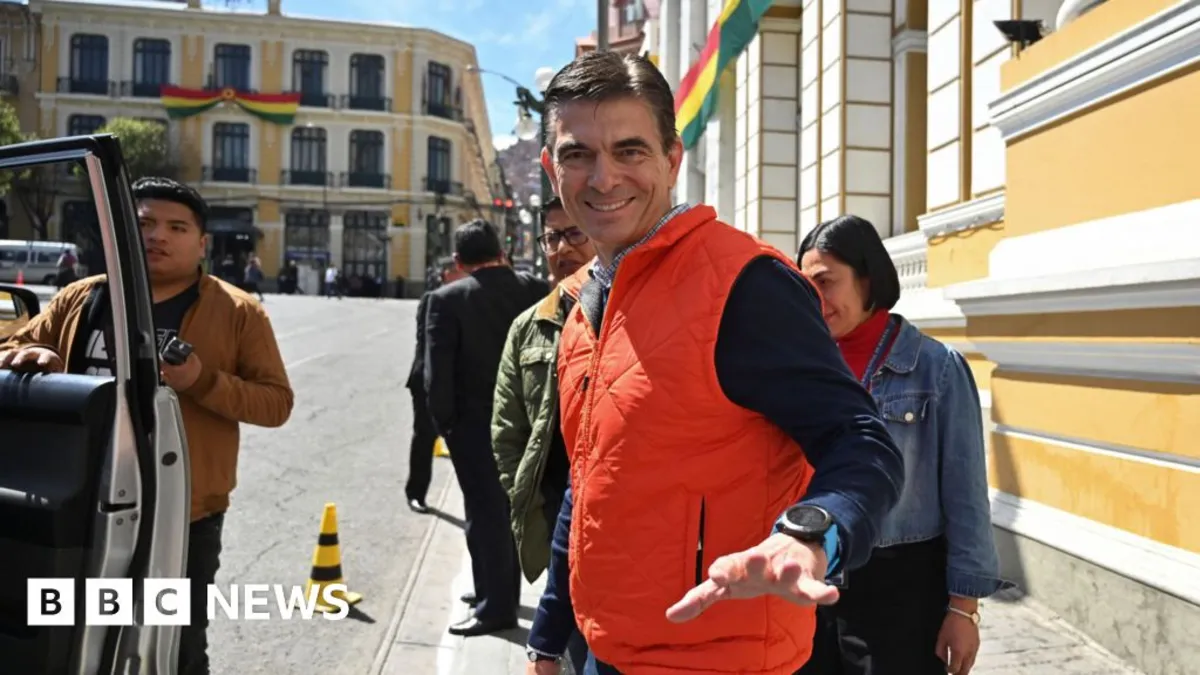
In a significant political shift, Bolivia is poised to elect a non-left wing president for the first time in nearly two decades, as indicated by official preliminary results from the recent presidential elections. Senator Rodrigo Paz Pereira emerged as the surprise leader of the vote, followed closely by former president Jorge Quiroga. Both candidates failed to secure the necessary majority, resulting in a run-off election scheduled for October.
Rodrigo Paz Pereira, representing the Christian Democratic Party, has campaigned on a platform emphasizing the redistribution of funds from the central government to regional entities, alongside a strong anti-corruption stance. His campaign slogan, "Capitalism for all, not just a few," resonates with an electorate eager for change. Among his proposed policies are accessible credit programs, tax incentives to stimulate the formal economy, and the removal of import barriers for products not manufactured in Bolivia.
In contrast, Jorge Quiroga, who briefly held the presidency from 2001 to 2002 after serving as Vice President under military dictator Hugo Banzer, represents a more established political figure. His experience and historical connections could provide stability amidst the current electoral turbulence.
The election of a president from outside the left camp is anticipated to lead to significant changes in Bolivia's foreign policy. Both candidates advocate for capitalist principles, which may encourage increased foreign investment, particularly in Bolivia's rich lithium reserves. These reserves are crucial for the production of batteries used in electric vehicles, laptops, and solar panels.
A shift in leadership could also mean a realignment of Bolivia's international relationships, potentially fostering closer ties with the United States after two decades of strengthening connections with China, Russia, and Iran. A recent report from the US Congress described the current state of US-Bolivia relations as strained, highlighting the impact of the socialist party's governance on bilateral ties.
As Bolivia grapples with its worst economic crisis in years, characterized by fuel shortages, dwindling foreign reserves, and soaring inflation, voter sentiment has shifted dramatically. Opinion polls prior to the election indicated a strong desire for change, with many voters eager to punish the incumbent Movimiento al Socialismo (MAS) party. The current president, Luis Arce, faced significant unpopularity and chose not to seek re-election.
The backlash against the left has not been confined to the ballot box. During the election, MAS candidate Eduardo del Castillo faced public hostility, being booed and told to wait in line like others for fuel. Another left-wing candidate, Andrónico Rodríguez, was met with violence as stones were thrown at him while he attempted to vote. An explosive device was even detonated at the polling station where he cast his ballot, although no significant injuries were reported. Rodríguez later characterized the incident as an isolated event driven by a small faction.
The left's struggles extend beyond electoral unpopularity; the movement is currently fractured. For the first time in nearly two decades, former president Evo Morales was absent from the ballot due to legal barriers preventing his candidacy. Morales, who ruled from 2006 to 2019, has called on his supporters to nullify their votes in protest of his exclusion. His former protégé, Rodríguez, has distanced himself from Morales, further illustrating the left's internal divisions.
The fallout from the last election in 2019, which was marred by accusations of fraud and subsequent protests, continues to influence the political landscape. Morales's departure from power, followed by Arce's presidency, has led to ongoing power struggles within MAS, exacerbated by recent calls for Morales's arrest over serious allegations. Despite these challenges, Morales remains active, operating from Chapare and supported by loyalists.
As Bolivia approaches this pivotal run-off election, the outcome will not only define the country's political future but could also signal a broader shift in regional dynamics within Latin America.